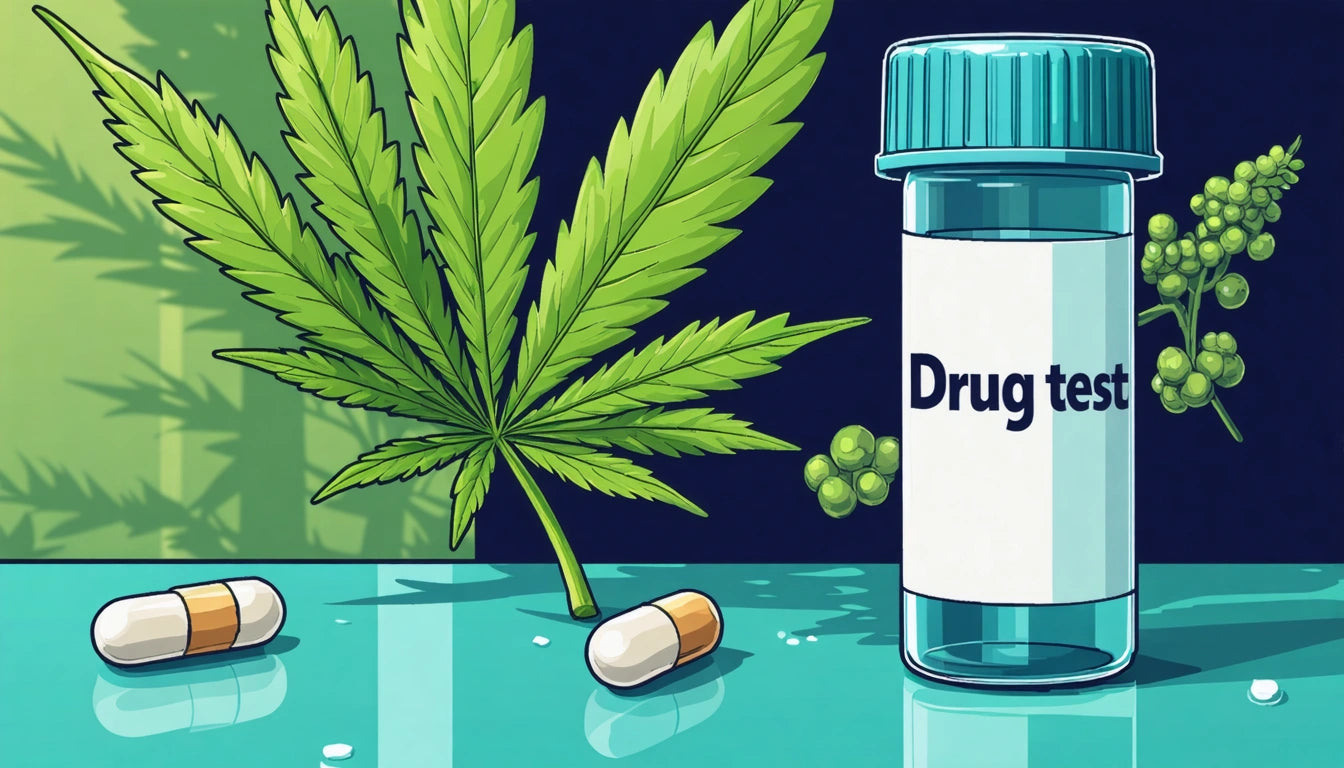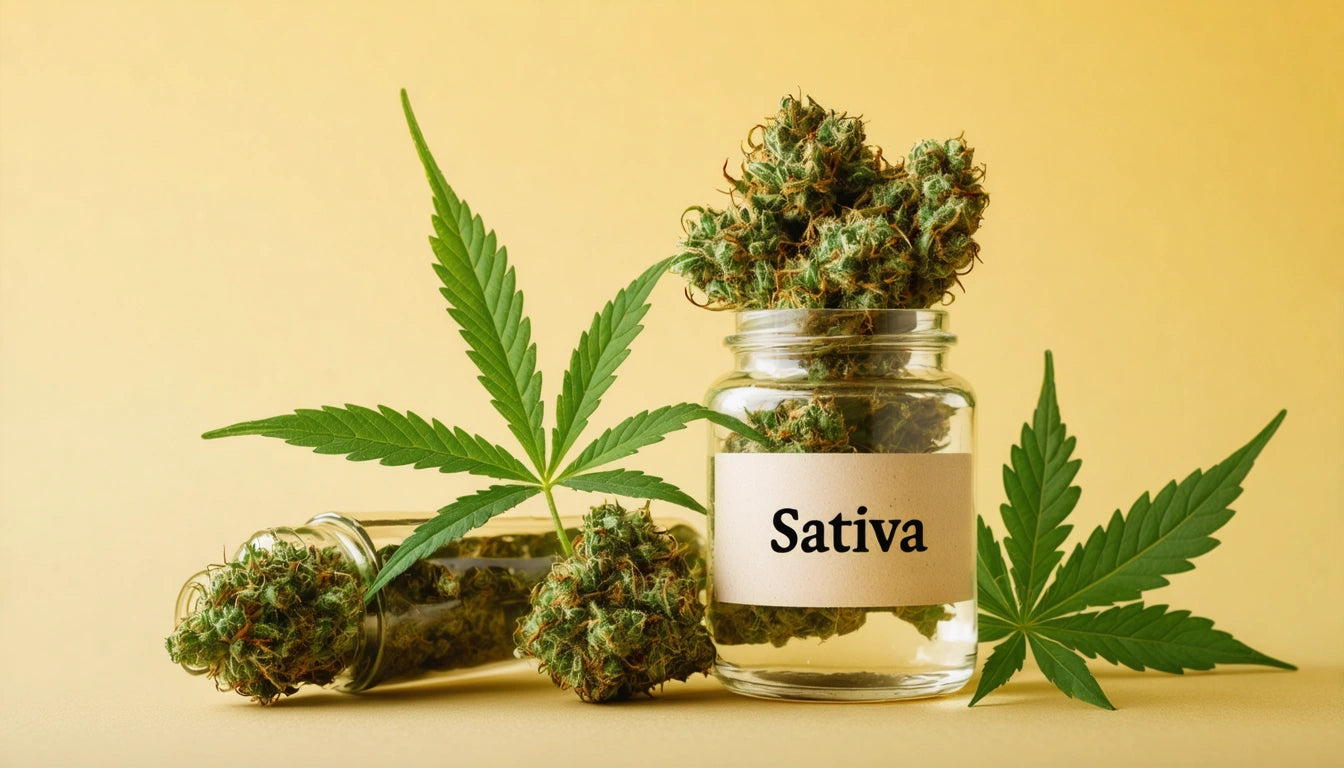Table of Contents
Will CBD Cause a Positive Drug Test Result?
The growing popularity of CBD products has raised important questions about their impact on drug testing outcomes. Many CBD users are concerned about whether their use of these wellness products could lead to unexpected positive results on workplace or athletic drug screenings. This concern is valid, as the relationship between CBD consumption and drug test results is nuanced and depends on several factors.
CBD and Drug Testing: Understanding the Basics
CBD (cannabidiol) itself is typically not screened for in standard drug tests. Most drug tests are designed to detect THC (tetrahydrocannabinol) or its metabolites, the psychoactive compound found in cannabis that causes intoxication. Pure CBD should not trigger a positive result on these tests, but the reality is more complicated.
According to research on CBD and drug testing, the primary concern isn't CBD itself but potential THC contamination in CBD products. This is particularly relevant for individuals subject to regular drug screening.
THC Content in CBD Products: What to Watch For
Full-Spectrum vs. Broad-Spectrum vs. CBD Isolate
CBD products fall into three main categories, each with different THC content:
- Full-Spectrum CBD: Contains all cannabinoids naturally found in the cannabis plant, including legal amounts of THC (typically up to 0.3% in federally legal products)
- Broad-Spectrum CBD: Contains multiple cannabinoids but has THC removed
- CBD Isolate: Contains only CBD with all other compounds removed
Full-spectrum products carry the highest risk of triggering a positive drug test due to their THC content, even when that content is within legal limits. Studies have shown that continued use of full-spectrum CBD can lead to THC accumulation in the body.
Types of Drug Tests and Their Sensitivity to Cannabinoids
Different drug testing methods have varying levels of sensitivity to THC and its metabolites:
- Urine Tests: Most common method, typically detects THC metabolites from use within the past 3-30 days
- Blood Tests: Detects active THC, usually only from recent use (within hours or days)
- Hair Tests: Can detect THC metabolites for up to 90 days
- Saliva Tests: Detects recent use, typically within the past 24-72 hours
The cutoff levels for these tests also matter. Standard tests typically have a cutoff of 50 ng/mL for THC metabolites, but more sensitive tests may have lower thresholds that could be triggered by CBD products with trace THC.
How to Avoid False Positives When Using CBD
If you're subject to drug testing and want to use CBD products, consider these precautions:
- Choose CBD isolate or broad-spectrum products instead of full-spectrum
- Request third-party lab results (Certificate of Analysis) that verify THC content
- Purchase from reputable manufacturers with transparent testing practices
- Consider disclosing CBD use to your employer or testing authority
- Avoid excessive doses, as higher consumption increases risk
Product safety and quality control are essential considerations. Proper safety regulations for CBD packaging help ensure product integrity and prevent contamination, similar to how child-resistant packaging protects against accidental ingestion of potentially harmful substances.
Legal Considerations for CBD Users and Employers
The legal landscape surrounding CBD and drug testing is evolving. While the 2018 Farm Bill legalized hemp-derived CBD containing less than 0.3% THC at the federal level, state laws vary significantly. Some states have explicit protections for CBD users, while others maintain stricter policies.
For employers, the challenge lies in distinguishing between CBD use and marijuana use. Some companies are updating their policies to accommodate legal CBD use, particularly for employees who use it for medical purposes. Understanding the legal distinctions between different cannabis products is crucial for both employers and employees.
CBD and Medical Disclosure
If you're using CBD for medical purposes, consider discussing this with your healthcare provider and, if appropriate, your employer. In some cases, documentation of legitimate CBD use might help address a positive test result, though this varies by employer and jurisdiction.
It's worth noting that CBD has numerous potential therapeutic applications that are increasingly recognized in medical communities, which is gradually influencing workplace policies.
The Future of CBD Testing and Workplace Policies
As CBD continues to gain mainstream acceptance, we're likely to see more sophisticated testing methods that can differentiate between CBD and THC use. Some specialized tests can already determine whether THC in a person's system came from CBD products or marijuana use, though these aren't yet widely implemented.
For now, CBD users should remain cautious if they're subject to drug testing. The question "can CBD get you high" has been thoroughly debunked (it cannot), but the potential for testing complications remains real.
As research advances and regulations mature, we can expect clearer guidelines for both CBD users and testing authorities. Until then, transparency, careful product selection, and awareness of your specific testing protocols are your best protection against unwanted test results.











Leave a comment
All comments are moderated before being published.
This site is protected by hCaptcha and the hCaptcha Privacy Policy and Terms of Service apply.